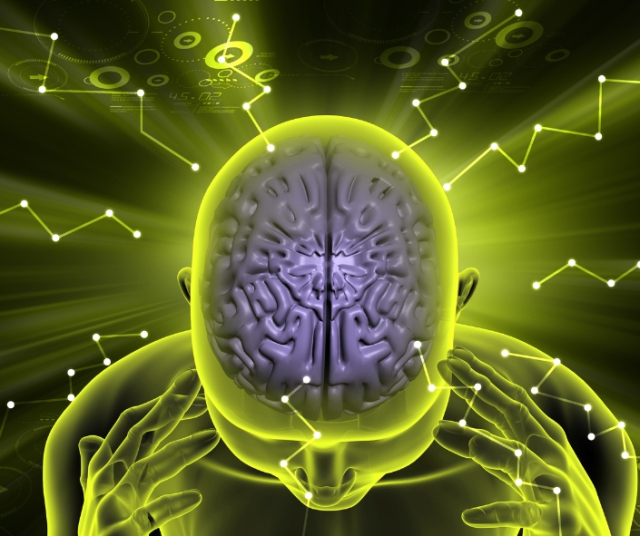How the human brain works

The human brain, that wonderful and complex organ that resides inside our head, is the control center for all our bodily and mental functions. From conscious thought to basic functions such as breathing and heart regulation, the brain coordinates all the activities of the human body in incredibly sophisticated ways. In this article, we will delve into the depths of the brain, exploring its structure, its functions and the mysteries that have yet to be discovered.
Brain:
The human brain is an incredibly complex organ made up of billions of nerve cells called neurons, as well as an intricate network of connections called synapses. It is protected by the skull and is divided into several main parts, each with specific functions that contribute to the overall functioning of the brain.
Brain structure:
The brain is divided into three main regions: the cerebrum, the cerebellum, and the brainstem. The brain, which is located at the top, is subdivided into two hemispheres: the left hemisphere and the right hemisphere. Each hemisphere is associated with specific functions: the left hemisphere tends to be more involved in language and logic, while the right hemisphere is more involved in creativity and spatial perception.
Brain functions:
The human brain is the epicenter of a multitude of vital and complex functions that allow us to interact with our environment, process information, regulate our body, and experience the world around us. These functions are distributed in different areas and structures of the brain, each specialized in a specific task but intricately interconnected for harmonious overall functioning.
One of the main functions of the brain is the control of movement and muscle coordination. This function is carried out mainly in the frontal lobe, where the primary motor area is located. From simple activities like walking and talking to more complex tasks like writing and dancing, the brain coordinates precise interaction between muscles and nervous systems to achieve smooth, coordinated movements.
In addition to movement control, the brain also plays a crucial role in sensory processing. Each of our senses, such as sight, hearing, smell, taste, and touch, sends information to the brain through specific nerve pathways. This information is processed in specialized sensory areas located in the occipital, parietal, and temporal lobes of the brain, where it is interpreted and converted into meaningful perceptual experiences.
Another vital function of the brain is the regulation of the body's autonomic functions, such as breathing, heart rate, and blood pressure. These functions are controlled by the autonomic nervous system, which is made up of two main divisions: the sympathetic nervous system, which prepares the body for action and stress, and the parasympathetic nervous system, which promotes relaxation and recovery. These divisions work together to maintain a homeostatic balance in the body, ensuring that all bodily functions remain within optimal ranges.
In addition to these basic functions, the brain is also involved in higher cognitive processes, such as attention, memory, language, and abstract thinking. These functions are carried out by specific areas of the brain, such as the frontal lobe, temporal lobe, and parietal lobe, which are highly interconnected and work together to process and store information, solve problems, and make decisions.
Information processing:
The brain processes information through complex networks of neurons that communicate with each other using electrical and chemical signals. When we receive information through our senses, such as sight or hearing, this information is processed in specific areas of the brain before being interpreted and stored in memory. The brain is also constantly receiving feedback from other parts of the body, allowing it to regulate functions such as body temperature and balance.
Brain plasticity:
One of the most surprising characteristics of the human brain is its ability to change and adapt to new situations, a phenomenon known as brain plasticity. This ability allows the brain to reorganize and recover after injury or illness, as well as adapt to changes in environment and lifestyle. Brain plasticity is especially pronounced during childhood, but continues throughout life, suggesting that the brain is always in a state of change and growth.
Brain diseases and disorders:
Despite its incredible ability to adapt, the human brain is vulnerable to a variety of diseases and disorders that can affect its normal functioning. From neurodegenerative diseases such as Alzheimer's and Parkinson's to mental disorders such as depression and schizophrenia, these conditions can have a significant impact on the quality of life of those affected and require careful and specialized treatment.
Advances in brain research:
In recent decades, advances in medical technology and neuroscience have shed light on many of the mysteries of the human brain. Techniques such as functional magnetic resonance imaging (fMRI) and electroencephalography (EEG) allow scientists to study brain activity in real time, providing invaluable information about how the brain functions in different situations and mental states. These advances are helping to advance research in areas such as brain development, learning and memory, and neuroplasticity.
The human brain is an amazing and complex organ that continues to baffle scientists and amaze humanity. Their ability to process information, adapt to new situations, and regulate all body functions is truly amazing. As we continue to explore the mysteries of the human brain, we are unraveling the secrets of what it means to be aware, think, and experience the world around us.
ARTICLES

Magical Creatures: Unicorns
Throughout the centuries, unicorns have continued to capture the imagination and admiration of people of all ages and cultures.

Magical creatures: The elves
Elves are creatures from European mythology, whose origins date back to the ancient beliefs and superstitions of Celtic and Germanic cultures.

The meaning of dreaming about ducks
Dreaming about ducks is an experience rich in symbolism, which can provide valuable clues about our psyche and our everyday experiences.

What does it mean to dream about sheep?
Dreaming about sheep is an intriguing phenomenon that can have a variety of meanings and interpretations, depending on the context of the dream.

Influence of emotions on human behavior
Emotions are a fundamental part of the human experience and play a crucial role in all aspects of our lives.

Strategies to achieve your goals and aspirations
Fulfilling your dreams and achieving your goals may seem like a big challenge, but with the right mindset and diligent action, it is totally possible.